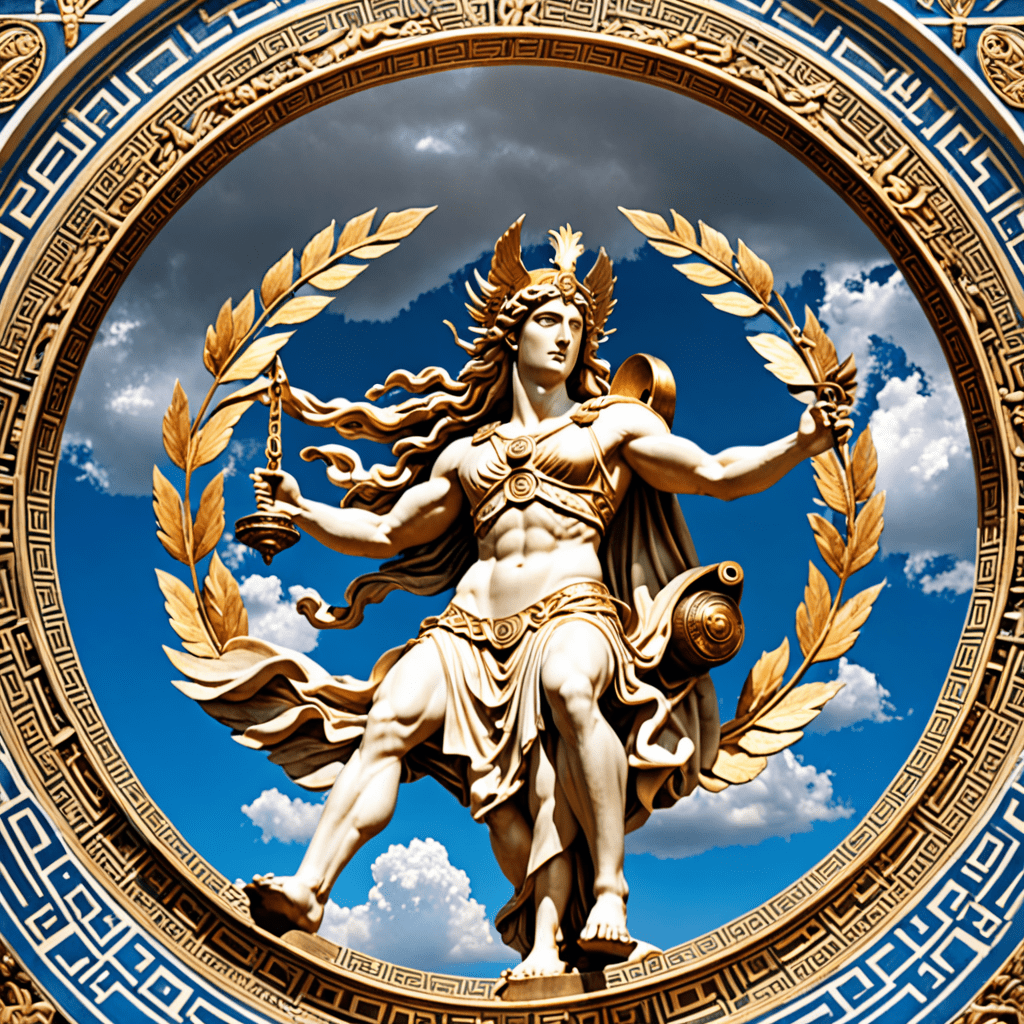The Power of Narrative: How Myths Teach Us Right from Wrong
Introduction: The Significance of Myths in Human Culture
Myths have been an integral part of human culture since the dawn of civilization. They are traditional stories that convey the beliefs, values, and moral lessons of a society. Myths often explain natural phenomena, human behavior, and the structure of the universe, serving not only as entertainment but as a means of imparting ethical teachings. This article aims to explore how myths function as moral frameworks, guiding individuals and communities in distinguishing right from wrong.
The Nature of Narrative: Understanding Myths as Moral Frameworks
Narratives are powerful tools that shape our understanding of the world around us. Myths employ specific narrative structures that include characters, conflicts, and resolutions, which together create a moral lesson. Through these narratives, individuals learn to navigate complex moral landscapes by witnessing the consequences of actions taken by mythological figures.
For instance, a common structure involves a hero’s journey, where the protagonist faces trials that ultimately lead to personal growth and moral enlightenment. The lessons learned through these journeys often reflect the values held by the culture from which the myth originates.
Historical Context: The Evolution of Myths Across Cultures
Mythological traditions vary significantly across cultures, yet they often share common themes and moral lessons. Some prominent examples include:
- Greek Mythology: Tales of gods, heroes, and moral lessons, such as the story of Prometheus, who defied the gods to bring fire to humanity, highlighting themes of sacrifice and rebellion.
- Norse Mythology: Stories like that of Odin, who sacrifices an eye for knowledge, emphasize the value of wisdom and the consequences of one’s choices.
- African Mythology: Rich traditions emphasizing community and morality, such as Anansi the Spider, who uses cunning to teach life lessons.
- Indigenous Myths: Often showcase a deep connection to nature and the importance of respecting the earth, as seen in stories of creation and harmony.
These myths have evolved over time, influenced by historical events, societal changes, and cultural exchanges, yet they continue to serve as moral compasses for those who embrace them.
Key Themes in Myths: Common Morals Shared Across Cultures
Despite the diversity of myths, certain themes recur universally, highlighting shared moral values. Some of these key themes include:
- Heroism: Celebrating individuals who demonstrate courage and integrity, often at great personal cost.
- Sacrifice: Illustrating the importance of putting others before oneself, as seen in myths like that of Christ or other sacrificial figures.
- Justice: Enforcing the idea that good ultimately triumphs over evil, often through divine intervention or moral reckoning.
These themes provide valuable insights into ethical behavior, encouraging individuals to reflect on their own actions and the impact on their communities.
The Role of Archetypes: Characters as Moral Exemplars
Archetypes are fundamental character types that recur across myths and serve as moral exemplars. Some common archetypes include:
- The Hero: Embodies bravery and resilience, often undergoing trials to achieve a greater good.
- The Trickster: Challenges norms and conventions, teaching lessons through cunning and wit.
- The Wise Old Man: Represents wisdom and guidance, providing insight and support to the hero.
These characters not only drive the narrative forward but also embody the moral values that myths seek to impart, making them relatable and instructional for audiences.
Myths as Tools for Socialization: Teaching Right from Wrong
Myths play a crucial role in socialization, particularly in teaching children and communities about morality. Through storytelling, individuals learn important lessons about ethics and behavior. For example:
- The Boy Who Cried Wolf: Teaches the importance of honesty and the consequences of deceit.
- Little Red Riding Hood: Warns against naivety and the dangers of straying from the path.
These stories provide frameworks for understanding complex moral dilemmas, helping shape the ethical foundations of future generations.
Modern Interpretations: Myths in Contemporary Society
In contemporary society, myths are often reinterpreted through various forms of storytelling, including literature, film, and media. This reinterpretation can reshape moral understanding and relevance. For instance:
- Films like The Lion King draw on themes from Shakespeare and African mythology, illustrating the cycle of life and the importance of responsibility.
- Books like The Hunger Games explore themes of sacrifice and justice, reflecting societal issues such as inequality and governance.
These modern adaptations keep the essence of the original myths alive while making them accessible and relatable to new audiences.
Critiques of Myths: Misinterpretation and Moral Ambiguity
While myths are valuable sources of moral guidance, they are not without their critiques. Misinterpretations can lead to flawed moral lessons. Some myths present moral dilemmas or ambiguous lessons that challenge straightforward ethical interpretations. For example:
- Prometheus’ story raises questions about the morality of defiance versus obedience to divine authority.
- The tale of Pandora’s box presents a paradox where curiosity leads to unforeseen consequences.
Such complexities remind us that moral lessons in myths are often nuanced and that critical engagement is necessary for understanding their implications.
The Psychological Impact of Myths: Shaping Individual Morality
Psychological theories suggest that narratives, including myths, play a significant role in shaping individual morality. The identification with mythological characters can influence moral behavior, as individuals internalize the values demonstrated in these stories. For instance:
- Research indicates that individuals who resonate with heroic narratives may be more inclined to act altruistically.
- Conversely, identifying with trickster figures may encourage questioning of societal norms and values.
This psychological connection underscores the importance of myths in personal development and ethical reasoning.
Conclusion: The Enduring Power of Myths in Guiding Ethics
In summary, myths hold an enduring power in shaping moral understanding, transcending cultures and generations. They serve as educational tools, exemplifying core values through narrative structures and archetypal characters. While myths can pose challenges in interpretation, their relevance in modern moral discourse remains significant. As we navigate the complexities of morality in contemporary society, the lessons embedded within myths continue to guide us in distinguishing right from wrong and in fostering personal development.




